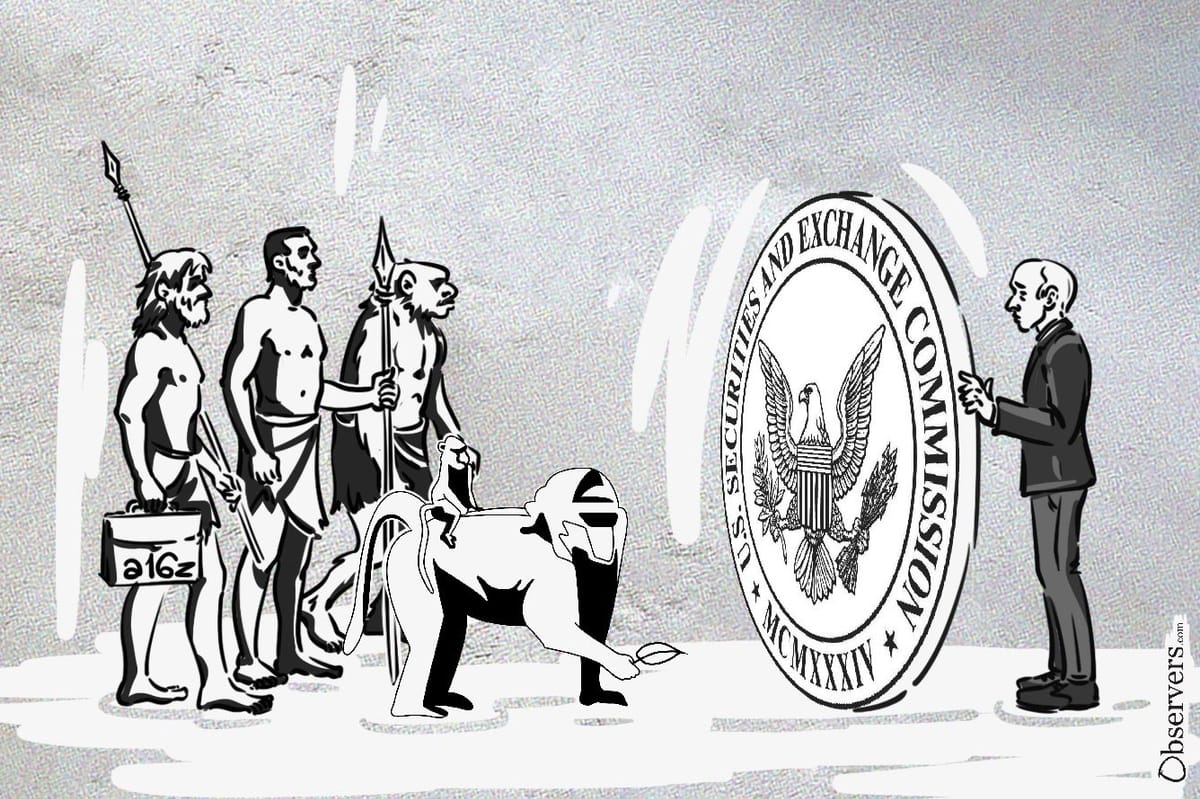
Andreessen Horowitz (A16z), Multicoin Capital, Paradigm, Union Square Ventures, and Variant filed an amicus brief on October 28, backing Beba LLC and the DeFi Education Fund (DEF) in their suit against the U.S. Securities and Exchange Commission (SEC). The case, filed in March in the Western District of Texas, seeks to clarify whether airdrops—free distributions of digital tokens—constitute securities transactions requiring SEC registration.
"The crypto industry is facing an existential threat from an overzealous regulator who is abusing its power by targeting our industry through unending aggressive enforcement actions." DEF @fund_defi
Beba, a Waco-based apparel company employing Kenya craftsmanship, created 100,000 BEBA tokens and distributed 60,880 of them in its first airdrop. Token holders can redeem 200 tokens for an exclusive bag priced at $190, available only through this program.
The company conducted its initial airdrop to two specific groups: users of Base Name Service who created domain names through the platform and previous holders of "Unisocks" tokens who had redeemed them for physical socks. Beba plans a second airdrop targeting three groups, including social media followers and those who create Beba-related domain names.
"The SEC has made clear, through public pronouncements and prior enforcement actions, that it believes that free airdrops of blockchain-based digital assets constitute 'investment contracts' under the securities laws," the venture firms stated in their brief, challenging what they called "improper de facto regulation of an important emerging technology."

The complaint details how the SEC has expanded its enforcement scope through several key actions, particularly relevant to Beba's planned token distribution, which would include airdrops to social media followers.
First targeting Tomahawk Exploration in 2018, the SEC claimed free token distributions qualified as securities sales when recipients promoted the company online—in a 2020 action against ShipChain and a 2022 case against Hydrogen Technology Corporation, the SEC broadened its view, arguing that social media promotion and even "liking" posts constituted valuable consideration.
Most recently, in March 2023, the SEC's action against Justin Sun and his companies claimed that participating in "emoji contests" or simple social media engagement provided "valuable consideration," amounting to an investment of money. According to the complaint, these enforcement actions show that "the SEC has taken the position that the Howey test's 'investment of money' requirement is satisfied by any theoretical benefit, such as boosts on social media, even when the token recipient pays the distributor no money."
4/ Re: airdrops, Beba is asking the court to rule that the free airdrop of its $BEBA token is not an “investment contract” or any type of security because it does not include an “investment of money.” pic.twitter.com/1NBKOsJcF5
— DeFi Education Fund (@fund_defi) March 25, 2024
"Under the SEC's view, Beba's request for members of the public to follow it on social media or add 'Beba' to their domain names prior to their receipt of an airdrop, falls squarely within the broad 'promotion' sufficient to qualify as an 'investment of money.'"
The case highlights growing industry frustration with the SEC's regulatory approach. In July 2022, cryptocurrency exchange Coinbase petitioned the SEC for clear rules on digital asset regulation, including specific guidance on airdrops. The SEC took 18 months to respond with a two-page denial letter in December 2023.
SEC Chair Gary Gensler has maintained an aggressive stance toward crypto regulation. The amicus brief specifically refers to a December 7, 2022 interview, where he warned the digital asset industry:
"Come into compliance. Your field will not last long outside of public policy norms. I might be technology neutral. But I'm paid not to be public policy neutral."
Commissioners Hester Peirce and Mark Uyeda have publicly criticized this approach. In September, they stated, "Leaving crypto to be addressed in an endless series of misguided and overreaching cases has been and continues to be a consequential mistake."
The Blockchain Association, Coinbase, Coin Center, the Crypto Council for Innovation, and the Investor Choice Advocates Network have also filed amici curiae in support of Beba.
The case could establish a crucial precedent for the $2.5 trillion digital asset industry, potentially affecting how blockchain companies distribute tokens in the United States. According to the complaint, 52 million Americans own digital assets, and the market is projected to reach $7.5 trillion by 2025.
"We can’t allow this state of play to continue." DEF @fund_defi

